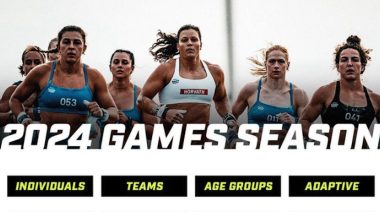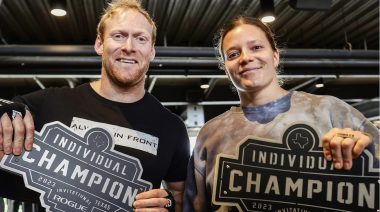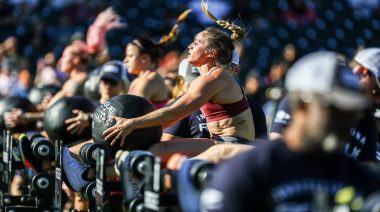It’s that time of year again. The holidays are coming to a close and we make our promises: promises to stop eating this or that, promises to quit smoking, promises to exercise, promises to get healthier.
According to Time magazine, 60% of gym memberships purchased in January are never used, and by mid-February, gym traffic is back down to pre-holiday levels. But why is it so many of these promises are broken so quickly?
Last week Becca wrote a fantastic article about setting SMART goals, where SMART means Specific, Measurable, Attainable, Realistic, and Time-based. I think this advice is right on the money, and if followed will make it much more likely for you to keep your promises and meet your goals.
About one year ago, I came up my own version of a “SMART” goal. I decided to make a plan and pursue a sub-60 second 400m dash. You can read the details here: An Achievable Goal or a Mid-life Crisis? But, at 44 years of age, and with a limited athletic background (I am being generous), my goal was certainly borderline not-smart. I am playing the edge and pushing the boundaries of what is Attainable and what is Realistic.
To make my goal a reality, I am relying on two additional strategies, one which was covered in Becca’s article and one which I consider critical in my case.
First, as Becca wisely suggests, “enroll everyone you know.” Tell your friends, your coworkers, your neighbors, your family, and even total strangers what you are going to do. Why do this, especially if you are a private person or if you are nervous about making your goal? The answer is because it makes you accountable. From my own experience, my friends are constantly asking me about my sprinting, what my training looks like, and encouraging me when I get discouraged.
Second, I recommend that you identify and marshal every resource you have available. In my case, this meant recruiting UNC assistant track and field coach, Davian Clarke to provide me with some one-on-one coaching. At some level it is a bit intimidating to be flailing around on the track while an Olympic bronze-medalist watches, but I decided having a good teacher was more important than my pride.
So, how am I doing?
As I mentioned above, I don’t have a lot of experience with athletics – therefore, I decided the initial part of my training would be to improve my overall strength and conditioning. To help in that regard, I have been working out at CrossFit three times per week for the past eight months. Before I started CrossFit, about the time I picked my 400m goal, my best measured time in the 400 was 1 minute and 45 seconds (pitiful). But by the middle of this past summer, I got my time down to a somewhat respectable 1 minute and 15 seconds.
 CrossFit has been great for getting me over the first hurdle – I am stronger and my conditioning is at a place where I can do a reasonable amount of work; however, I am now shifting 100% of my training to a pure track and field program. Sprinting is a specific, technical athletic skill and if I want to improve, I need to actually practice running. About one time each week, I have a session with Coach Clarke, and I have track workouts two other times on my own. I am also adding in core work and some active recovery and mobility on my “off” days.
CrossFit has been great for getting me over the first hurdle – I am stronger and my conditioning is at a place where I can do a reasonable amount of work; however, I am now shifting 100% of my training to a pure track and field program. Sprinting is a specific, technical athletic skill and if I want to improve, I need to actually practice running. About one time each week, I have a session with Coach Clarke, and I have track workouts two other times on my own. I am also adding in core work and some active recovery and mobility on my “off” days.
While my progress is certainly encouraging, it is by no means a given I will achieve my goal this coming year. However completely independent of my arbitrary SMART goal, I know I am a lot healthier than I was at this time last year – a fantastic by-product. I have lost some body fat, I have more energy, and I sleep well. Life is good.
What about you? Do you have a goal for 2012? Trust me, telling other people will make it a lot more likely you will do the work necessary to achieve it.
Share your goal for 2012 in the comments below.






